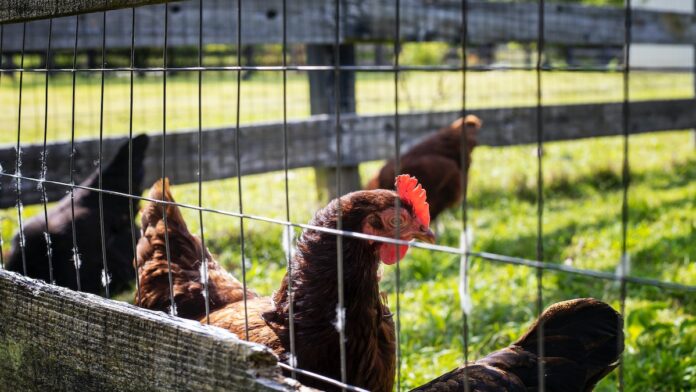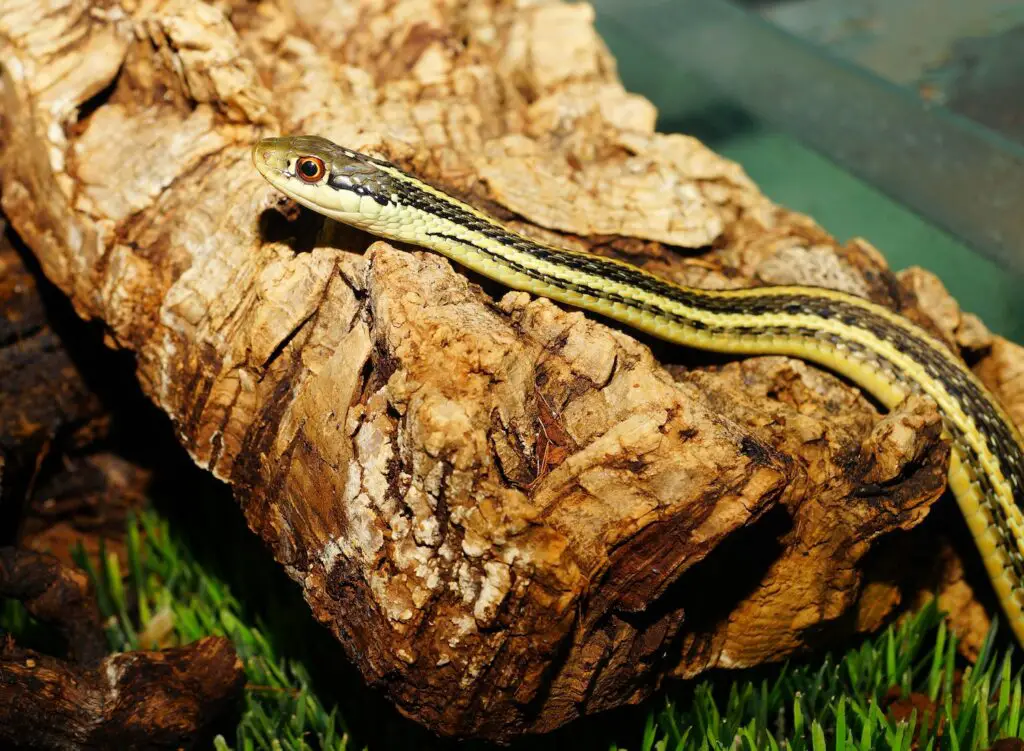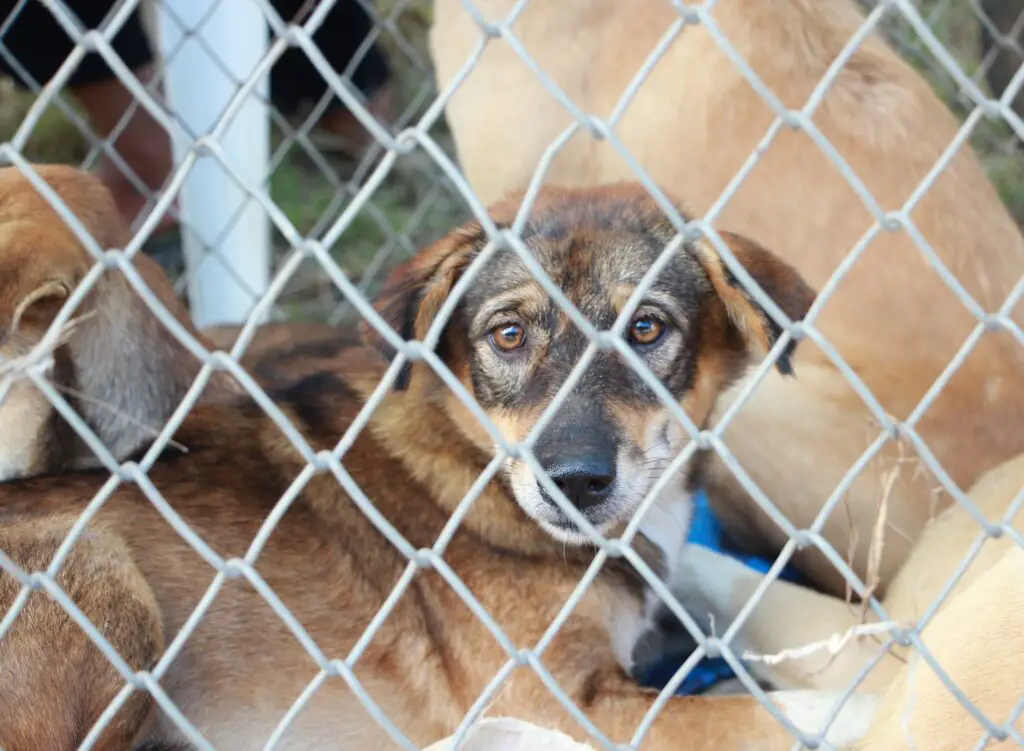Some links on this page may contain affiliate links which means that, if you choose to make a purchase using the link, Agricfy.com may earn a small commission at no extra cost to you. For more information, go to our Affiliate Disclosure Page!
Are your poultry birds falling prey to relentless predators? Don’t worry, I’ve got you covered.
In this complete guide on how to protect your poultry birds from hidden hazards, learn practical and proactive methods to secure your feathery friends and guarantee their safety.
Introduction
Raising and maintaining a successful flock of poultry birds depends heavily on protecting them from predators.
Predators can include smart foxes and cunning raccoons, and their attacks can result in catastrophic losses for both commercial and backyard chicken keepers.
However, you can provide a safe environment for your feathery friends with the right information and proactive steps.
We will look at the “What,” “Why,” and “How” of safeguarding your poultry birds from predators in this article.
We’ll also go into great detail on typical predators, the causes of their assaults, and most importantly how to protect your chicken coop and effectively ward off prospective dangers.
So, let’s dive right into it.
What Common Animals Prey on Poultry Birds?
Recognizing the predators that are a hazard to your poultry is essential before implementing prevention measures. Naturally, being able to identify these critters will help you better comprehend their behavior and formulate a focused protection strategy.
Finding Predators: The Typical Suspects
- Foxes
Foxes are clever and cunning, and they have a reputation for stealing poultry, especially at night. Unfortunately, attacks from this predator, which are fairly common in backyard flocks, are very challenging to stop.
If a fox finds out about your chicks, it will come back every night until it has killed all of them.
Foxes are intelligent animals that easily break through wire mesh, fit through small spaces, and dig under fences to get access to coops. Foxes with motivation are terrible predators.
In their den, the foxes remove the birds and even bury some of them for later consumption.
If a fox has broken into the pen house, there may be blood and scattered feathers as well as a lingering odor, similar to coyote indicators. Foxes can hunt both during the day and at night.
They have also been known to abduct free-roaming chickens and abandon them. Because foxes are so sly, there would be no indication that your chicken had been stolen during the day by a predator.
Your best defense against foxes is to make significant changes to your chicken coop and deploy heavy equipment.
It is helpful to first determine how the fox is accessing the coop utilizing a trail camera or even a video baby monitor in order to fortify that part of the coop.
- Raccoons
One of the worst predators of chickens, raccoons are known to cause havoc on poultry farms.
Raccoons often prey on people at night and discreetly slaughter all of your birds. The hens in your backyard are most at risk then.
In order to protect your poultry birds from attacks by raccoons, it is advisable to build your poultry farm away from a raccoon-free area and, if possible, span your poultry farm with nets that are impossible for raccoons to enter.
- Predator Birds
Among the raptors that keep an eye on your chickens from the sky are hawks, eagles, falcons, and owls. Some of them only hunt during the day, similar to the hawk, while others, like the owl, only hunt at night.
The hawk, which you could see swooping above rural areas and perched on lampposts in cities, is one of the most common predators of chickens.
These birds will only murder one or two at a time, saving the rest of your flock for later. Before consuming the chicken’s breast meat and internal organs, they normally remove the head.
Given that some raptors may take smaller hens and newborn chicks as prey, you could only notice feathers and blood on the ground.
It could be difficult to stop raptor attacks while your flock is free to roam.
The majority of them are protected, therefore shooting them won’t work to keep raptors away from your flock. Fortunately, there are a number of tried-and-true methods that can be helpful!
Try to get your flock to bed earlier than usual to prevent owl attacks. Hunting for owls begins at dusk.
It can be challenging to evade attacks from hawks and eagles that are active throughout the day.
Your hens are constantly on the lookout for hawks in the sky, and if they spot one, they will quickly run for cover—but only if there is already some safety there.
Installing dense vegetation around the coop, such as plants, trees, hedges, bushes, and hedgerows, can considerably reduce attacks.
To keep predatory birds away, you can consider putting a roof to your chickens’ runs or, at the very least, covering the top with poultry netting.
- Snakes
Snakes frequently prey on chickens for food. Even though they are not the main chicken predators, snakes will still try to eat adult chickens if they come across them out of pure hunger.
A snake can easily kill any prey, including itself, by injuring itself, stretching, and then spitting itself out with the force of a thrown stone until it reaches the intended victim and bites it.
Sealing off all potential entrance points with a net that is too small for snakes to fit through is the simplest approach to stop snakes from killing or devouring your chicken.
- Coyotes
Coyotes, also called brush wolves, are becoming more and more common in urban settings. Coyotes are extremely adaptive, especially in rural areas, and can be a major menace to poultry.
In this region, they will hunt stray cats and dogs in addition to other easy prey. They hunt in packs and are fierce hunters because they hunt in their communities.
Usually, coyotes don’t bother assaulting coops or other secure locations. They choose to pursue and steal free-range hens instead.
You will benefit from keeping a sizable, tidy, and mowed barrier surrounding your chickens’ ranging space.
If you wish to protect your poultry birds from their attacks, you should make every effort to clear brush piles and other places where they can hide before attacking your birds.
- Domestic Animals
Dogs are a typical example of household animals that, if not properly trained, might develop a taste for chicken and turn into predators.
Despite being popular as pets and gentle with young children, they are ferocious chicken hunters.
Even when told to stop, dogs that attack poultry birds continue to chase after the prey.
Please try to put an end to the pursuit if you are a poultry farmer and see a dog chasing a bird with a strong desire since your bird may be in danger.
Keeping aggressive dogs away from your bird is the simplest method to keep it safe.
- Minks And Weasels
These frightening critters encircle hens and amuse themselves by biting them on the neck.
If unsuccessful, they will try again and again until all the birds are dead. They will destroy an entire flock in a single night.
Weasels and minks are notorious for killing people for entertainment. They frequently murder a few chickens, let them rot in the coop, and then go kill another.
On occasion, these predators eat the chicken’s head and the corpse’s internal organs.
If you have to deal with a mink or weasel, I feel for you. These creatures are quite intelligent, and they could easily elude a live trap while still killing.
Additionally, they are able to squeak through extremely narrow gaps and prey on both young and adult chickens.
To preserve the life of your flock, keep any dirt away from the poultry farm and try to trim any plants that are close by.
Additionally, to make it impossible for these animals to enter, try building a net crossing across your poultry farm.
Why Are Your Poultry Birds Attractive Targets?
As mentioned, knowing why predators choose to prey on poultry will help you create effective preventative measures. Predators find poultry birds intriguing for a number of reasons. They consist of:
- Easy Prey
Compared to wild birds, poultry birds are typically slower moving and less defensive, making them simple prey.
More so, many poultry species have limited flying abilities compared to wild birds.
This reduces their chances of escaping from predators effectively.
Again, poultry birds usually spend a significant amount of time on the ground, which exposes them to a wider range of predators that are adapted to hunt on land.
- Healthy diet
Poultry meat and eggs are particularly nutrient-dense for predators, making them valuable food sources.
For carnivorous and omnivorous predators, poultry birds provide a great source of protein. Protein aids in skeletal muscle growth, tissue repair, and several metabolic activities.
Poultry birds also contain lipids and other nutrients that can be advantageous to predator species.
- Enclosed Space
Coops and runs offer a secure area where predators can strike unimpeded.
In industrial poultry farming, birds are often kept in confined spaces, which can make it easier for predators to access them.
- Unsecured Coops
It is true that poultry birds are more likely to be attacked by predators in an unlocked coop.
A coop lacks the required safeguards to keep out possible threats when it is improperly guarded. It is simple for predators to enter the coop and prey on the chickens, including foxes, raccoons, weasels, hawks, and even domestic dogs.
To stop predators from tunneling beneath, squeezing through, or breaking into the structure, a secure coop usually incorporates characteristics like strong walls, floors, and ceilings.
It should also have windows and doors with good seals to deter unintentional access.
Why Is Preventing Predators Essential For Your Flock of Poultry?
Let’s stress the significance of predator prevention for the welfare of your poultry flock before discussing preventive solutions.
Reducing Financial Losses
Attacks by predators can cost chicken producers and backyard keepers a lot of money.
The total profitability of your poultry business may be impacted by bird losses, decreased egg output, and significant veterinarian costs.
Protection of Animal Welfare
The well-being of your feathered buddies is your responsibility as a conscientious poultry owner.
Keeping them safe from predators helps the flock avoid unneeded anxiety, harm, and terror.
keeping The Peace of Mind
You may rest easy knowing that your poultry birds are secure from potential predators, giving you more time and attention to invest in other elements of poultry farming or simply enjoying the pleasure of maintaining these lovely animals.
How To Keep Your Poultry Birds From Predators
By putting these useful tips into practice, you can strengthen your coop and protect your priceless birds from harm.
- Secure Fencing
The basis of poultry protection is a strong, predator-proof fence.
Predators can’t squeeze through, so use hardware cloth or welded wire mesh with tiny openings.
To prevent digging attempts, try burying the fence at least 12 inches deep.
- Lock Up Your Poultry Birds At Night
Owls and other avian predators who despise people regard the night as the best time to hunt chickens.
When designing your coop, take safety into account. The main material shouldn’t be chicken wire because strong predators can simply rip through it.
Use strong materials instead, such as plywood, and be sure that any entrances have locks that will fend off predators.
Close and lock the coop to ensure that it is securely closed.
Including the vents and windows, too.
- Strengthening The Coop
Here is an additional defense against hidden predators for your poultry birds.
Consider fitting all doors, windows, and vents with predator-proof locks. Additionally, to prevent forceful entrance, fortify entry points with metal plates.
However, it’s crucial to routinely check and maintain the coop to check for damage.
- Suitable Lighting
As you may already be aware, predators are more prone to attack during the night. This is undoubtedly one of their preferred methods of assault.
In order to prevent nocturnal predators, you should make every effort to install motion-activated lights around the coop and run area.
Doing this will, no doubt, help keep those harmful poultry predators at bay.
- The Use of Guard Animals
Consider introducing guard animals like well-behaved dogs or geese to patrol the area around the coop.
These creatures can act as an early warning system by deterring potential predators with their presence.
A well-trained dog may be able to guard your chickens outside the coop.
Since most chicken predators are scared of dogs, being around dogs will dissuade most of them.
- Superior Coop Design
Elevating the coop off the ground will deter burrow-digging predators like foxes and weasels.
This is why you should consider installing a ramp so that your poultry birds may easily enter the coop.
You should regularly inspect the state of your chicken coop as well.
Verify that there are no holes or openings where bird predators could wander.
Use solid hardware whenever possible.
- Utilizing Noise Reducers
Loud, unexpected noises have the power to frighten and deter predators from approaching.
They are easily scared off by noise for some reason. And it’s a tried-and-true tactic.
Therefore, playing music near the chicken coop at night is a good deterrent to stop any prospective predators.
- Allotted Free Range Time
It goes without saying that when the chickens are outside the coop, predator attacks are most common. If you have problems with predators, keep your chickens in their secure run or keep an eye on them while they are allowed to roam free.
If you don’t want to fully commit to keeping your chickens inside, even doing so for a week or two following an attack will greatly lessen problems.
For a brief period of time, predators will return before moving on to easier-to-catch prey.
You can further help to protect your free-range birds by cultivating hedges and tall perennials that your chickens can hide behind in the event of a predator.
We also always leave the coop door open when the hens are free roaming to give them a safe haven in case of emergency.
This list should help you become more knowledgeable about the numerous predators that exist and how to protect your flock.
Conclusion
Predator protection for your poultry birds is a continuous process that demands proactive action. You may provide a safe and secure atmosphere for your cherished flock by comprehending the typical predators, appreciating the causes of attacks, and putting workable solutions into action.
Predator prevention efforts will pay off in the form of healthier, happier chickens as well as increased peace of mind for you as the poultry keeper. Keep in mind that keeping a well-planned, predator-resistant coop and run as well as regularly using proper husbandry methods are the keys to success.
You can also take pleasure in the pleasurable experience of rearing poultry birds while fending against potential dangers with commitment and foresight.
I really hope this was helpful to you. Please let us know what you think by leaving a comment below.




